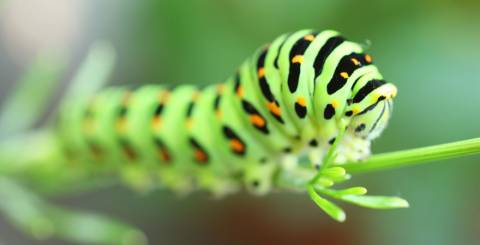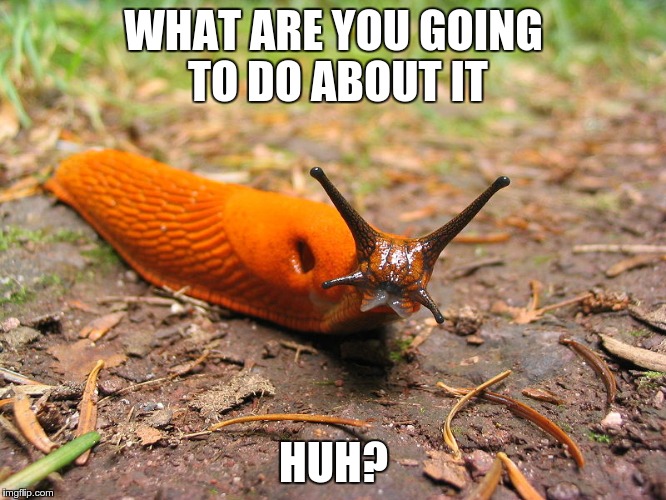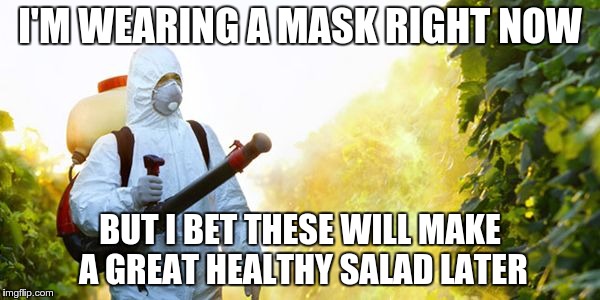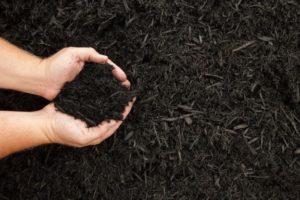

Having issues with garden pests?
You struggle every day with that particular caterpillar you see munching on your plants and when you reach to grab and throw it away, it suddenly disappears with its super sonic speed? And those slugs. They were born and raised in a secret community in a temple far far away from civilization, based in a long-asleep volcano, trained by the master minds of gardening evil to give them their sole purpose in life – to destroy your plants in particular. And let’s not mention the aphids. You are still amazed how someone could have put so many efforts in casting an aphid curse with such massive proportions upon your garden. This would require years of experience in dark magic!

These and other pests are gathering legions to invade and demolish what’s now left of the ruins you once called your garden. Your desperation grows directly proportional to the foe’s numbers. With every second passing, you lose a millimeter of valuable foliage! You are convinced this is the point of no return.
So what do you do about all of this?
You are now sure that only radical actions could take place and eventually win this war for you. Pesticides! But you are to soon find out there are no winners in war.
Pesticides are meant to kill stuff. And that is exactly what they’ll do.
The poisonous chemicals are specially designed to take life away. And here’s the deal:
Life needs…life.
Professionalists warn that there are insects and beasties in your garden that are actually beneficial for it. In fact – none of your crops will ever give fruit if they’re not pollinated. Guess who does the pollination aside from the wind. Most of the flowers’ pollination success (up to 80%) is done by pollinator animals. These might be bees, wasps, ants, butterflies and moths, et cetera. And you know what your pesticides will do? Correct. They will mercilessly murder all of these little hard workers that were doing nothing but helping your garden!
Not only that!
Insects are part of the food chain and eliminating them might poison, or leave hungry and eventually kill many other species in the area also included in this food chain.
Pesticides are nay because(summary):
- They tend to spread. Spread through air, water, the soil. You might damage a lot more than just your backyard. Think of the environment you are a part of!
- They destroy the nutrient values of your soil. Let’s do the math here – your soil has poor nutrients levels, your crops become weak and give weak, unhealthy fruits with, again, low nutrient values and this ends up affecting the ones that eat them – you!
- Pesticides might tear apart the food chain and therefore significantly disturb your local ecosystem. That will surely affect your plants in many harmful ways.

But the problem is still present then?
Yes, but as the Talking Heads once sang – “fight fire with fire”. Instead of killing everything in sight with a poisonous chemical you can just gather and mobilize an army of your own.
As I mentioned earlier – those pests are a part of a food chain. Meaning they are also part of someone else’s menu. Here’s another cliché just to make sure you get the point – “the enemy of my enemy is my friend”.
Conclusion:
You encourage natural pest control in your garden! There are different beneficial predators you can persuade to fight on your side. Toads, hedgehogs, snakes, bats – all of these exist just to serve you in the gardening pest purge. That’s the thing with nature – it has its own ways to enforce balance. And a garden, rich in wildlife, will certainly thrive.
For your convenience, here’s more detailed info on your future pest control allies:
Spiders – Masters of trap hunting, although some, such as the Wolf Spider, have ambush strategies. The only minus is some people are rather spider intolerant.
Toads – You might consider them your siege artillery. Self-directing canon – they usually stay still and eat bypassing insects, but if needed they will roam the garden. They love slugs and snails. And that’s not in a romantic way.
Hedgehogs – Again – a weapon of mass pest destruction. Hedgehogs are the nomads in your garden. They will restlessly prowl your backyard until their monstrous hunger is satisfied. Avoid giving them anything salt involving or milk.
Snakes – An easy solution to rodent infestation. The Grass snake, which is most likely to be found in your yard, is not venomous. You can encourage its presence with no worries. Common interests unite.
Birds – As a successful garden-war tactician you are probably aware that you would need air reinforcement. Most of the birds will feed on nothing but insects. This, of course, makes them most welcome in your garden. Plus you get to listen to their mesmerizing songs. While controlling the hell out of your pests.
Bats – the winged mice will make sure your patio is safe during the night. That’s literally a 24/7 pest control management. Bonus credits for bats – they are also distinguished pollinators.



